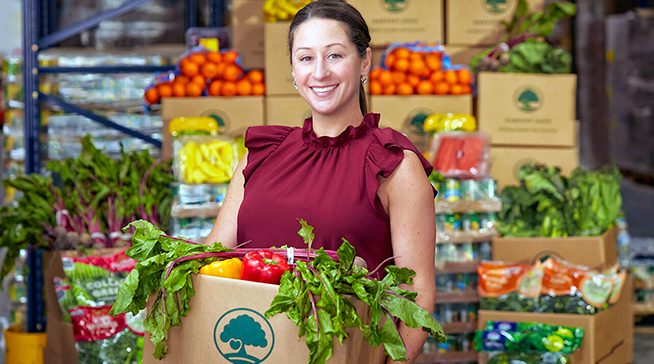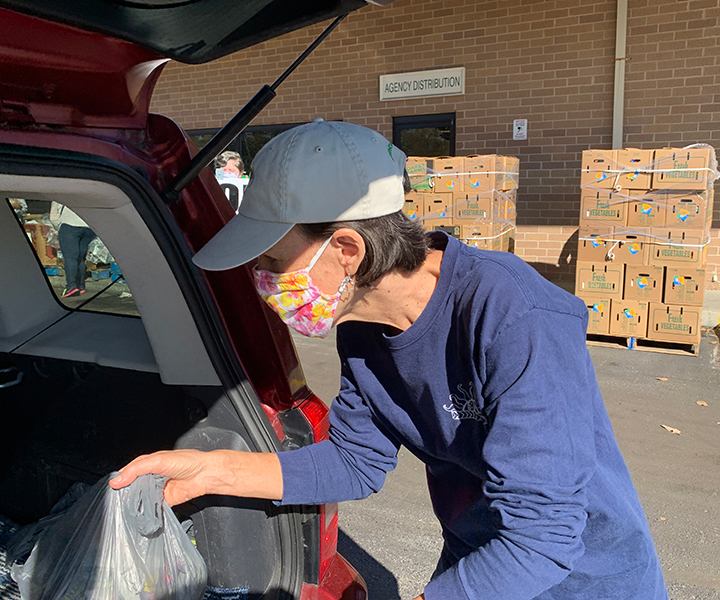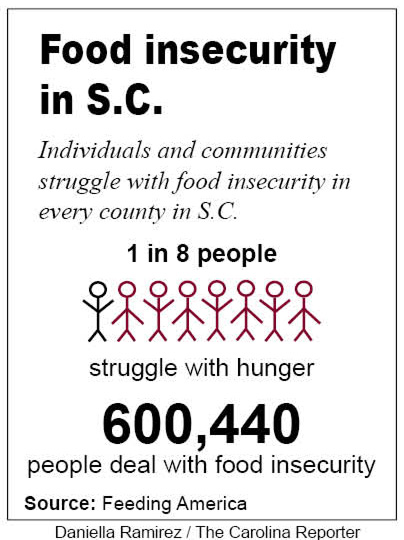Erinn Rowe, the new CEO of Harvest Hope Food Bank, continues to address the food insecurity issue in S.C. Photos courtesy: Harvest Hope Food Bank
During this time of economic uncertainty, a dollar can go a long way in helping combat hunger in South Carolina.
Harvest Hope, S.C.’s largest food bank, can feed up to five families with that small donation and help provide food for vulnerable citizens across the state.
Over 22.6 million meals are provided annually by Harvest Hope across the Midlands, the Pee Dee and Upstate, which helps feed over 1 million people.
Erinn Rowe, the new CEO of Harvest Hope food bank as of March 15, said she feels the need to feed all the hungry people who line up outside Columbia’s Bluff Road facility.
“I feel a lot of pressure because of the mission, which is feeding hungry people,” Rowe said Monday. “I don’t think it’s acceptable for anybody to be hungry.”
Rowe succeeded Wendy Broderick, former CEO of Harvest Hope Food Bank who died Jan. 4. Now Rowe has taken on the mantel of moving the organization forward, continuing the fight to end hunger in S.C. and uphold Broderick’s legacy and mission for the organization.
“I’m really excited to start looking at ways that we can automate our online ordering system for agencies and create online ordering for our emergency food pantry and things like that,” said Rowe. “That’s going to help us be able to make our donor dollars last longer and get through the rebuilding phase of COVID-19.”
The pandemic has shifted Harvest Hope’s food pantry distribution, causing them to venture out and spread to different locations across the state in order to withhold social distancing regulations.
Communication is important among all 400 agencies across 20 counties that Harvest Hope serves. Rowe’s initiative to help create an ‘online ordering system’ will make it even more convenient for people to obtain their food needs by ordering online during this time.
“It’ll be a part of our website. There will be like an ‘Agency’ button that people can click and it’ll show a list of what we have available in inventory,” said Rowe. “So then you would order what you want, schedule the time you want to pick it up, and then we would already have that waiting for you.”
Rowe said by creating this new initiative for Harvest Hope can help the organization distribute food faster and ultimately fight ‘food insecurity’ across S.C. at the same time.
Those in the U.S. who have been most impacted by COVID-19 became food insecure, and those who were already at risk of food insecurity before COVID-19 are struggling even more, according to a Feeding America 2020-2021 analysis.
“Until the economy stabilizes and until these businesses start rehiring that have been closed, or new businesses open to take their place, people will still utilize our services,” said Rowe.
Rowe said the first batch of $1,400 stimulus checks helped people budget for food without utilizing the food bank services as much, but theoretically, that’s the organization’s goal — to be out of business.
“We want to be out of the job. We want to help address the root causes of food insecurity and they are layered. They are health care issues, they’re the cost-of-living issues, low-income housing issues,” said Rowe. “So we really have to work with partners to help address those issues, so food security isn’t an issue anymore.”




